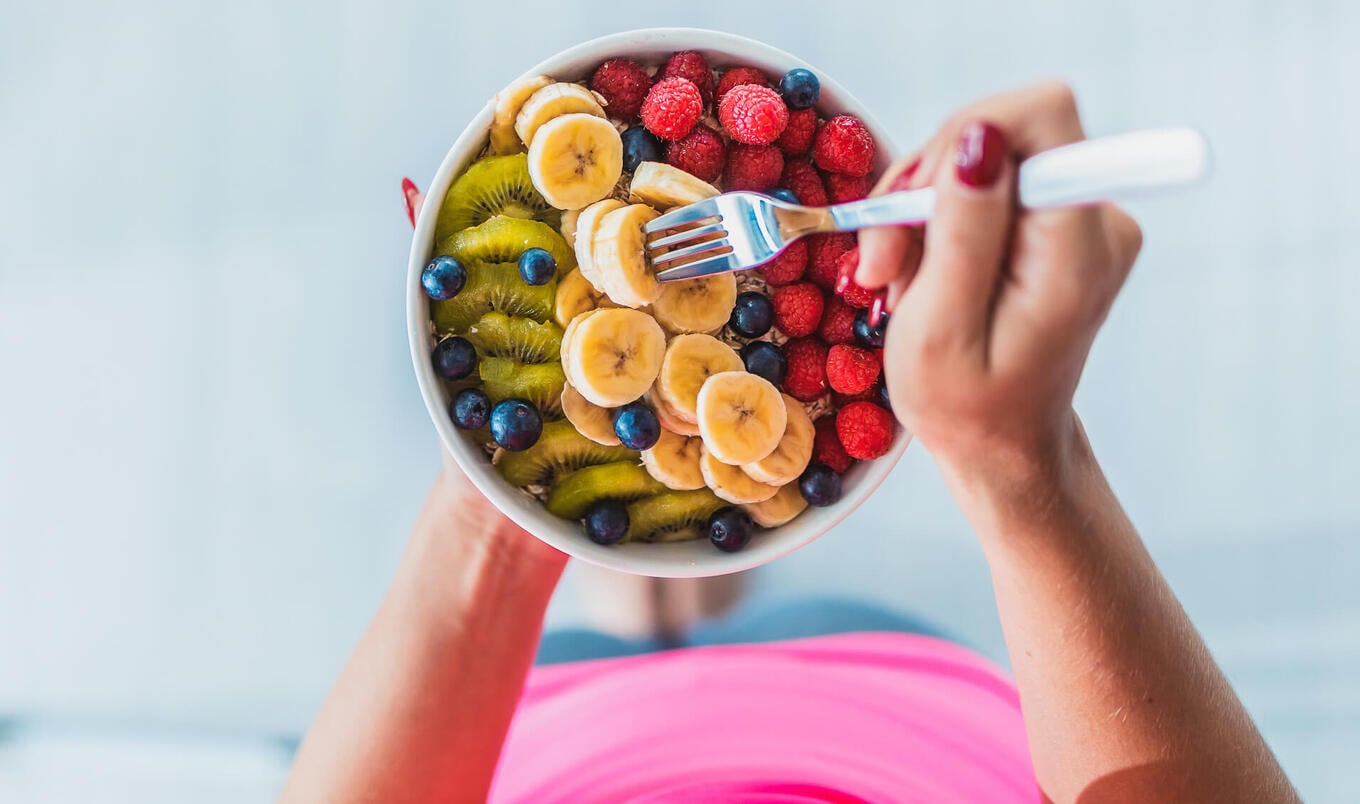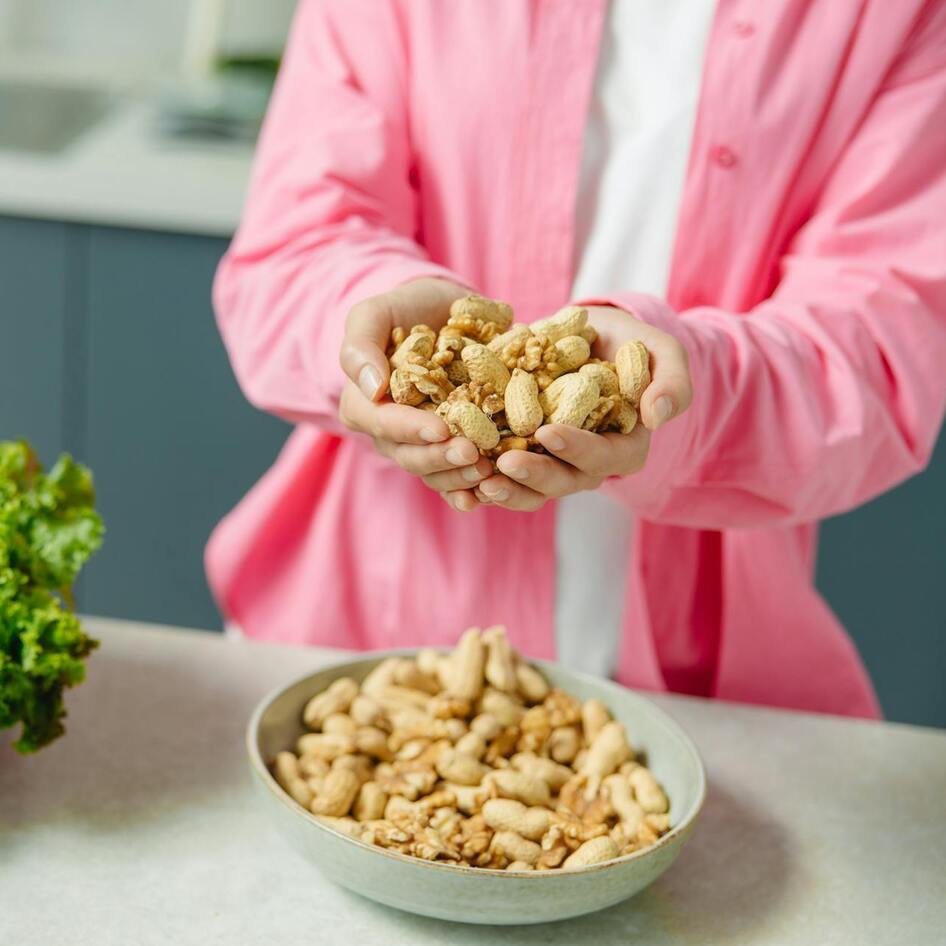Renowned actresses Gabrielle Union and Drew Barrymore recently shed light on a shared journey—the tumultuous path through perimenopause and its unexpected toll on their bodies.
As Union candidly expressed on The Drew Barrymore Show, the onset of perimenopause felt like a sudden and unwelcome visitor, manifesting itself in an astonishing 27-pound weight gain that seemed to happen overnight.
Barrymore, too, had her own battles with perimenopausal challenges, specifically extreme bloating triggered by the stress hormone cortisol wreaking havoc in her stomach.
“When I am stressed, the cortisol in my belly gets so bad that I can look anywhere from six to eight months pregnant,” Barrymore said on the show. Recognizing the impact of stress on their bodies, both actresses sought solutions to regain control over their health and well-being.
 The Drew Barrymore Show
The Drew Barrymore Show
Union revealed that her doctor had recommended a stringent dietary regimen as a crucial step in managing the weight gain. The prescription was clear: no gluten, no dairy, no alcohol, and no caffeine. A formidable challenge, but one that Union was willing to undertake, acknowledging that three out of the four restrictions seemed like a plausible sacrifice.
Research supports this notion, linking high stress levels to weight gain in women. Furthermore, the hormonal fluctuations during menopause, marked by significant changes in estrogen and progesterone levels, contribute to the loss of muscle mass. This loss, in turn, reduces the number of calories burned, leading to weight gain—particularly in the abdominal region.
Heart health during menopause
The consequences of this weight gain are not to be taken lightly. Extra weight in the abdomen increases the risk of heart disease, type 2 diabetes, and breast cancer in women, according to Harvard Health.
And, in fact, the hormonal and body composition changes that occur during menopause can also increase the risk of developing heart disease. According to the American Heart Association (AHA), adopting specific dietary habits can help women navigate this crucial life transition while reducing the risk of heart issues in the long run.
 Getty
Getty
While there is no miracle food, it’s essential for women to consider their overall eating pattern. The AHA recommends a plant-forward diet such as the DASH-style and Mediterranean-style diets, which are rich in vegetables, fruits, whole grains, healthy fats, and lean proteins, while being low in salt, sugar, alcohol, and processed foods.
Vegan diet reduces hot flashes
Amidst the shared tales of perimenopausal struggles by Barrymore and Union, a groundbreaking study by the Physicians Committee for Responsible Medicine (PCRM) unveils the potential for a low-fat vegan diet as an ally in the battle against menopause-related hot flashes.
This new research sheds light on the transformative power of a low-fat vegan diet, particularly one rich in fruits, vegetables, grains, and beans, as a potent weapon against the often-debilitating effects of menopause.
 Adobe
Adobe
The study, a secondary analysis of the WAVS trial (Women’s Study for the Alleviation of Vasomotor Symptoms), found that women who adhered to a low-fat vegan diet experienced a remarkable 95 percent reduction in overall postmenopausal vasomotor symptoms.
Severe hot flashes were completely eliminated, and moderate-to-severe hot flashes saw a striking 96 percent decrease. Both daytime and nighttime hot flashes diminished by 96 percent and 94 percent, respectively. As an added benefit, participants in the study also shed an average of 6.4 pounds.
Hana Kahleova, MD, PhD, co-author of the study and Director of Clinical Research at the PCRM, advocates for women seeking relief from hot flashes to embrace a vegan diet.
“Women who want to fight hot flashes should feed the bacteria in their gut a vegan diet rich in fruits, vegetables, grains, and beans, which also leads to weight loss and protects against heart disease and type 2 diabetes,” Kahleova said in a statement.
The WAVS trial involved 84 postmenopausal women experiencing two or more moderate-to-severe hot flashes daily. Participants were randomly assigned to either an intervention group, following a low-fat vegan diet that included a daily half cup of cooked soybeans, or a control group that maintained their usual diets for 12 weeks.
Gut health during menopause
In a groundbreaking approach, the researchers conducted a gut microbiome analysis using stool samples from a subset of 11 participants. The analysis at baseline and after 12 weeks on the vegan diet revealed notable changes in the abundance of several families, genera, and species of bacteria.
Remarkably, reductions in the abundance of Porphyromonas and Prevotella corporis were associated with a decrease in severe daytime hot flashes. Prevotella corporis, identified in the gut of individuals with rheumatoid arthritis, exhibits pro-inflammatory properties, suggesting a potential link between gut health, inflammation, and menopausal symptoms.
 Nensuria
Nensuria
The study also highlighted a decrease in the abundance of Clostridium asparagiforme, associated with a reduction in total severe and severe nighttime hot flashes. This bacterium has been linked to the production of trimethylamine-N-oxide, a compound associated with an increased risk of cardiovascular disease and type 2 diabetes. The findings suggest a potential connection between hot flashes and cardiovascular health.
As the study delves into the intricate world of gut microbiota, the authors propose that changes in the abundance of various bacteria may contribute to alleviating hot flashes through mechanisms such as stabilizing estrogen levels, reducing inflammation, and enhancing satiety.
In the quest for effective and holistic approaches to menopausal well-being, the study provides a compelling narrative, encouraging women to consider the transformative potential of embracing plant-based diets for both symptom relief and overall health.
For the latest vegan news, read:
JUMP TO ... Latest News | Recipes | Guides | Health | Subscribe









